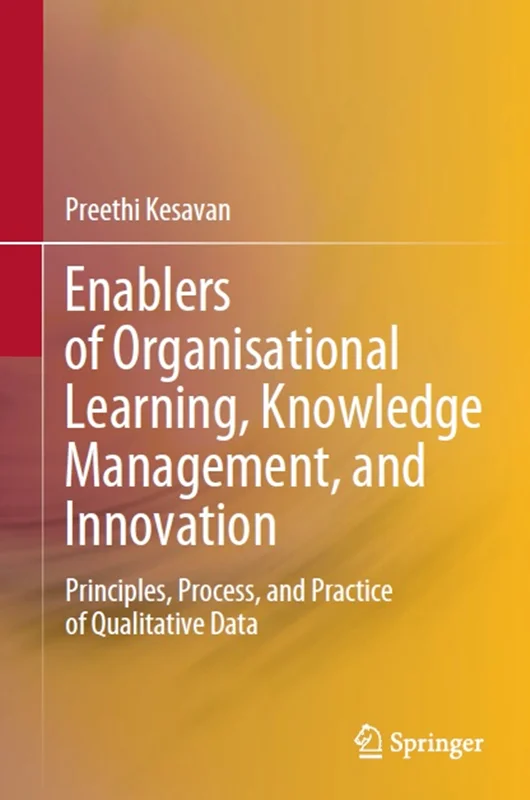Enablers of Organisational Learning, Knowledge Management, and Innovation: Principles, Process, and Practice of Qualitative Data
Preethi Kesavan | 9811597928, 978-9811597923, 9789811597923, 978-9811597930, 9789811597930, B08NYC9CRM
This book establishes constructivist, interpretivist, and linguistic approaches based on conventions about the nature of qualitative and text data, the author’s influence on text interpretation, and the validity checks used to justify text interpretations. Vast quantities of text and qualitative data in organizations often go unexplored. Text analytics outlined in this book allow readers to understand the process of converting unstructured text data into meaningful data for analysis in order to measure employee opinions, feedback, and reviews through sentiment analysis to support fact-based decision making. The methods involve using NVivo and RapidMiner software to perform lexical analysis, categorization, clustering, pattern recognition, tagging, annotation, memo creation, information extraction, association analysis, and visualization.
The methodological approach in the book uses innovation theory as a sensitizing concept to lay the foundation for the analysis of research data, suggesting approaches for empirical exploration of organizational learning, knowledge management, and innovation practices amongst geographically dispersed individuals and team members. Based on data obtained from a private educational organization that has offices dispersed across Asia through focus group discussions and interviews on these topics, the author highlights the need for integrating organizational learning, knowledge management, and innovation to improve organizational performance, exploring perspectives on collective relationships and networks, organizational characteristics and structures, and tacit and overt values which influence such innovation initiatives. In the process, the author puts forward a new theory which is built on three themes: relationship and networks, knowledge sharing mechanisms, and the role of social cognitive schema that facilitate emergent learning, knowledge management, and innovation.


